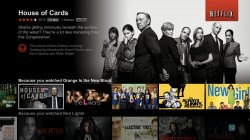Welcome to another edition of the WNR. Windows 10 is just around the corner, and most believe it will be the Windows 7 to 8’s Vista (if you know what I mean). I’ve been using Windows 8 for about 4 months now, and it really isn’t as bad as people make out, although definitely not as good as it should be. So I’ll be upgrading to Windows 10 as soon as possible (and by as soon possible, I mean until others have tried it on the Surface Pro 3 and found no real problems with it).
Here’s this week’s news …
![]()
There’s more evidence this week that piracy site censorship just doesn’t work. In fact, not only does it not work, it seems to actually help boost piracy, by giving undue publicity to sites that have been blocked. A new study from Italy gives evidence showing a dozen different sites all gaining in popularity after being blocked in Italy, including sites that had almost zero profile in the country prior to the banning. One site even managed to enjoy a 1000% (that’s one *thousand* percent!) increase in search engine traffic after the blocking took place, all largely thanks to the media (and online) attention gained by the block.
It’s almost as if the list of blocked sites has become a list of must-visit piracy sites, and the numerous proxies sites (many of which were set up to make easy advertising dollars) that spring up for these blocked sites also help with the visibility of these sites on search engines.
None of this will make any different to rights-holders though, since to them, any action, no matter how pointless, is better than actually addressing the real issues at hand. Embracing change and innovating is just too hard and risky, in their minds.
One unwanted change that might be happening is this: DRM for JPG. It sounds like a terrible idea at first thought, and it might just turn out to be one, but the standards committee, JPEG, says that the DRM will mainly be for privacy reasons. The DRM could be used, for example, to protect your private photos – and if these photos were to leak online, the original owners can simply activate the DRM controls and make the photos unviewable. It could also be used to prevent government surveillance, as one research paper noted recently (although my guess is that the encryption used in the DRM would be a trivial to break for any half competent government agency).
All of this sounds nice, but you just know that once the DRM is in there, privacy won’t be the only application for it. News and photo sites will use it to prevent copying of images (although they can’t prevent the simple print-screen), and porn sites may even use it to protect their content.
![]()

Studios treating Blu-ray like a mass consumer format, when it was always just a niche format, along with inconsistent releasing has ruined the format, says Blu-ray producers
Blu-ray is a failure. This sounds strange coming from someone who has purchased hundreds of Blu-ray discs, and will continue to purchase them, but given the expectations behind the format, it certainly can’t be considered a total success. And this expectation, Blu-ray producers say, is exactly why studios have failed Blu-ray.
A panel of top Blu-ray producers at Comic-Con let loose on studios and how the Blu-ray format as mismanaged. They say that instead of being the next DVD, Blu-ray was always going to be a niche format, a format that only those that wanted to absolute top picture and audio quality would want. For most people, they say, DVD (and now downloads and streaming) is more than good enough.
But studios expected more, and they will label anything less than their expectations as a failure, including Blu-ray. The panelists fear that studios will make the same mistake with 4K Ultra HD Blu-ray, which they say is even more of a niche format than Blu-ray (fair enough, considering how few people will have 4K TVs by the time the new disc format launches at the end of the year).
The producers also criticised studio greed in relation to “double dipping” (making people buy the same content over and over again) and the lack of commitment to releasing (such as suddenly stopping releases of season box sets half way through the collection), all of which led to consumers losing confidence in the format.
And that confidence is shifting to other ways to watch content, such as streaming. With Netflix alone now accounting for 36% of all peak download traffic in North America, consumers are definitely voting with their feet. However, while Netflix is popular, a quick browse through their catalogue still shows just how much content isn’t on there. While some of it are on rival subscription streaming platforms, but even when you combine the content on Netflix, Amazon, Hulu and HBO Now, there’s still a huge swathe of content that’s missing, especially newer content. DVD and Blu-ray is the the studio’s platform of choice for these types of content, but it may not be the consumer’s choice.
And this is where piracy comes in – to fill the gaps between consumer demand and studio supply. Which is why I completely disagree with the statement made by Shaun James, the chief executive of Australian streaming platform Presto. James says: “It’s a really hard argument for a pirate to run when you’ve got a multitude of services from $10 per month, to say it’s too expensive, I can’t get it, I can’t afford it – that’s a really shallow argument.”
Shallow or Straw Man? Presto is the exclusive streaming providers for HBO content in Australia, but you cannot watch any new shows or even old episodes of Game of Thrones on it, because Presto’s owner, cable operator Foxtel, has locked up these programming exclusively to their cable platform. The cheapest package to get Game of Thrones in HD on Foxtel costs USD $40 per month, and requires a cable or satellite set up that isn’t available everywhere – so the argument “I can’t get it, I can’t afford it” still seem fairly valid.
With that said, there will always be people that are unwilling to pay for content no matter how cheap, or easily available, it is. These people are not the problem though, because you can’t lose money from people that were never going to pay.
![]()
It’s not the hardware, it’s the games. When it comes to making money off video games, this is certainly true. This is why game companies often take an initial loss on the game console to gain market share, so they can easily recoup the losses via game sales and licensing.
And for the current generation, Sony is definitely the winner so far when it comes to market share. Ubisoft’s earnings reveal just how far ahead the PS4 really is at this stage, with 27 percent of Ubisoft’s game sales happening on Sony’s platform, compared to just 11% for the Xbox One (the 360 and PS3 were also on 11%, just to give you a comparison of how poorly the XBO is doing).
It’s not game over yet though for Microsoft’s console. The backwards compatibility addition should help, but only price cuts will help the Xbox One catch up.
——
And on that note, we come to the end of another WNR. Hope you’ve enjoyed reading. See you next week.




